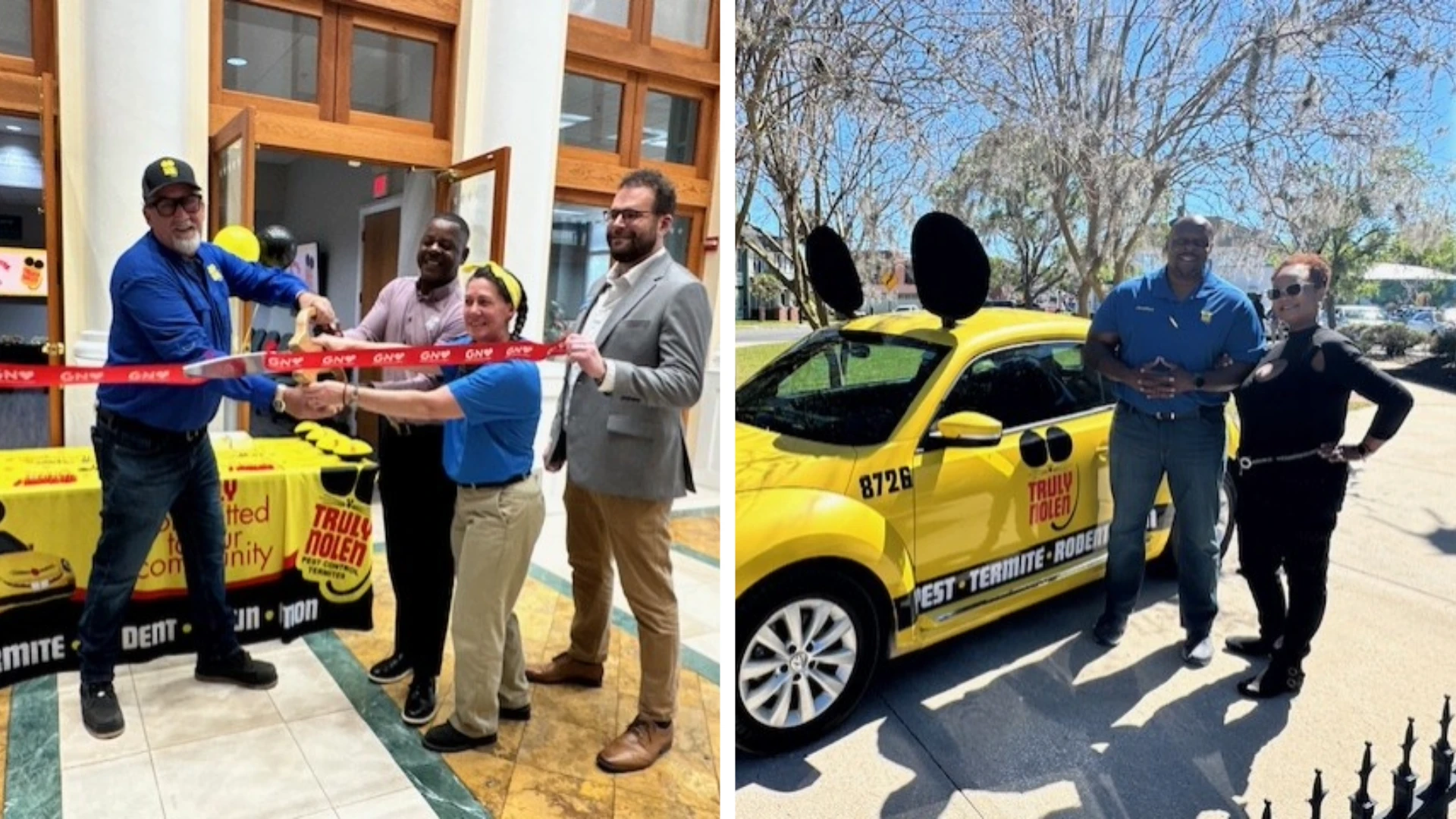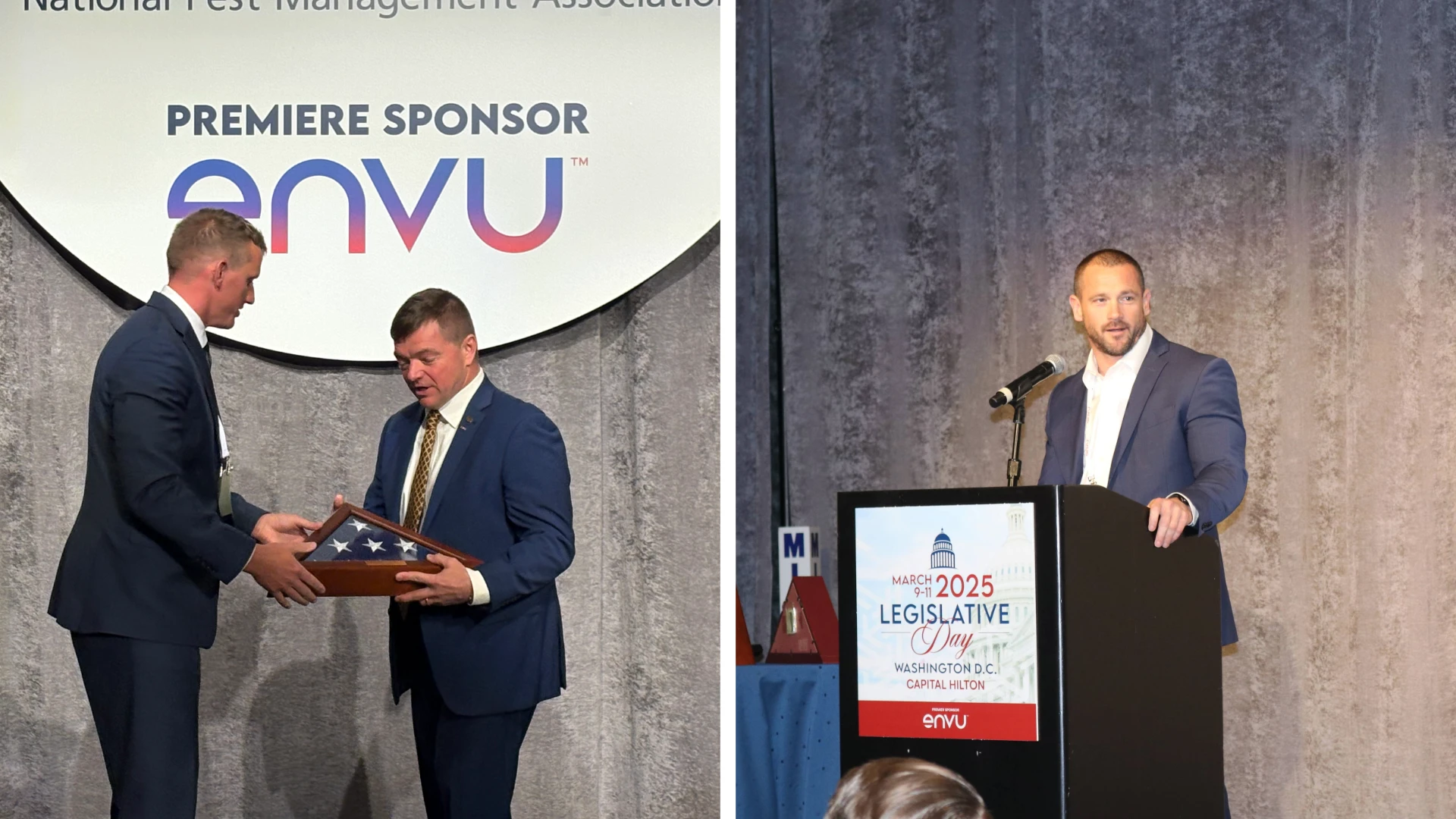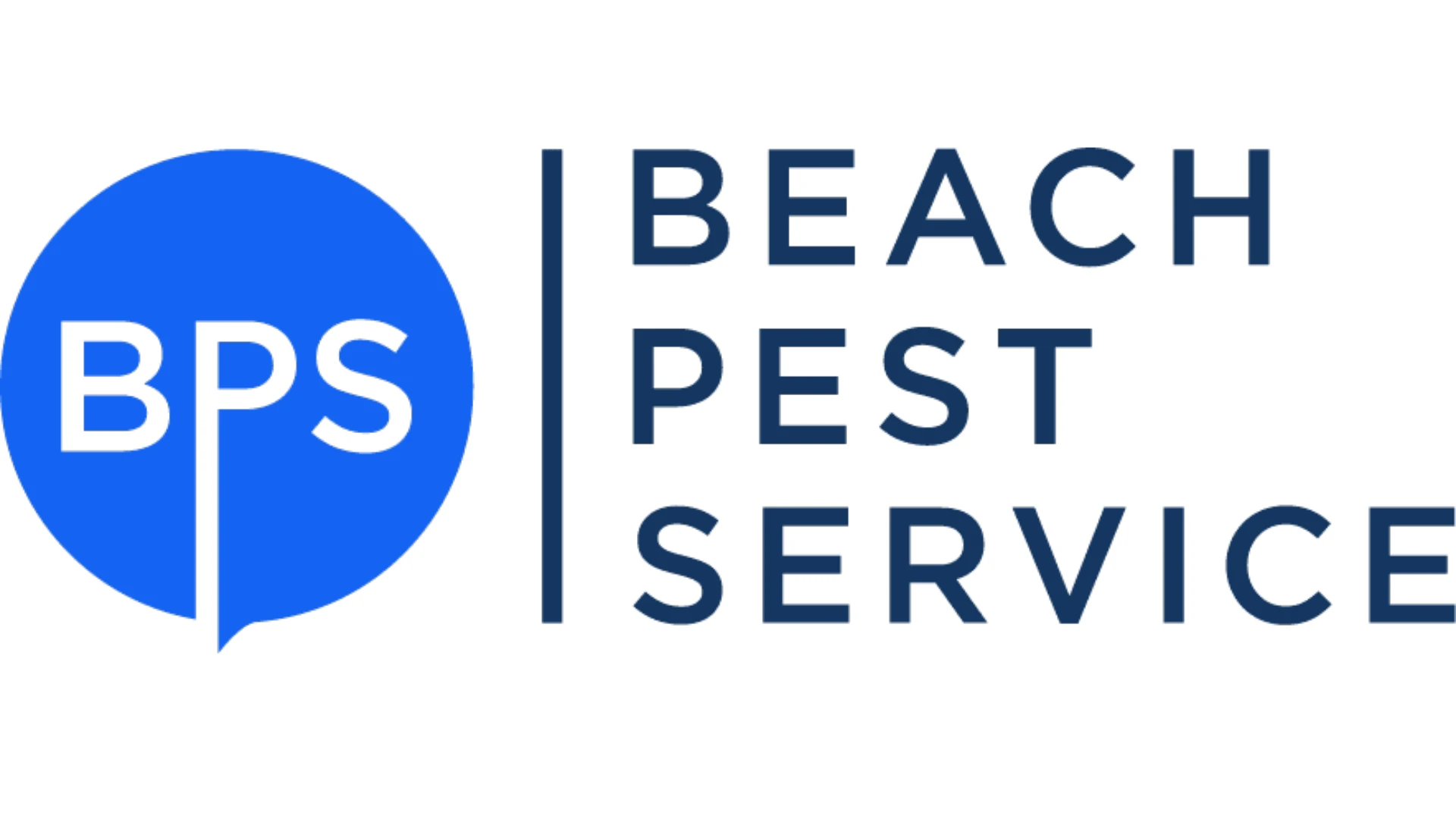
A conversation with Michael Botha is usually upbeat and inspiring. Perhaps the only way to irritate the 49-year-old native of South Africa is to talk negatively about his adopted homeland — the United States.
“There’s nowhere else in this world like America; it is the only place in this world where there is an American dream,” he said. “If you take the opportunity that this great country gives you, you can become as successful as you want to be — the only limiting factor is you.”
Like many immigrants before him, Botha arrived in the U.S. with no green card, no work experience and no education. “I had $264 and a backpack,” Botha recalls of his early days in the U.S. What Botha did have was a drive to succeed and chase the “American Dream.” For Botha, that dream includes building, from the ground up, Pearl City, Hawaii-based Sandwich Isle Pest Solutions into a $7.3 million business, and enjoying the fruits of his labor with wife Melissa, and children Brooke (15) and Mikey (13), in Hawaii and in the family’s new home, Montana.
And it’s an “American Dream” in progress. Botha and his family are embarking on a new chapter in their lives. In August, he announced the sale of Sandwich Isle Pest Solutions to Terminix. Next on his list of challenges is running his newest venture, Big Sky Pest Solutions, and making a new life in the American West.
IN HIS BLOOD. Like many U.S. PCOs, Botha grew up in a pest control family, however, his experiences were in a vastly different environment. Both his grandfather, Robinson, and father, Petrus, were pest management professionals in South Africa. The type of pests the Bothas dealt with in South Africa are both familiar, and not-so familiar, to PMPs in the U.S.
Botha recalled one job where he tagged along with his dad and another worker to remove a black mamba snake from an abandoned farmhouse. His dad came within a split-second of having that snake swoop down from a broken ceiling and bite him in the head. Fortunately, quick-on-his-feet Petrus was able to shoot the snake’s head off with a .410-gauge shotgun just in the nick of time.
On another occasion, a young Michael used a pair of pliers to remove a snake which he later learned was a puff adder, a highly venomous African snake. In addition to these adventures, Botha got great experience learning the ins and outs of pest control and soaking in valuable business and life lessons from his dad and grandad.
“They drilled this into me: If you’re going to do the job, do it right or don’t do it at all,” Botha said. “And always do the right thing. So the one thing that shaped my life more than anything else was my dad telling me: You can walk anywhere you want in the world, but when you turn around it’s like walking through a field of snow — your footsteps will follow you everywhere you go.”
While South Africa is a beautiful and interesting country, it also has a long history of instability, particularly during Botha’s youth, in the 1980s. In 1984, at age 17, he was conscripted into the Republic of South African Defense Force. Botha was a physical trainer (PT) instructor, a member of the 101st Airborne and also a voluntary convoy driver in operational zones. “It was a pretty intense time. South Africa was in the midst of a 16-year bush war in which Russia and Cuba were supplying rebels across every border. They were installing land mines and raiding farmers throughout the border areas in South Africa.”
Despite these sometimes nerve-wracking situations, Botha describes his military service as “the biggest fun I’ve ever had. I was a 17-year-old kid given unlimited rounds of ammunition and giant trucks to drive through the bush. Lots of fun.”
GO WEST YOUNG MAN. Botha’s military service ended in 1987, and from there he bounced from Switzerland across Europe and finally to Florida, working as a boat captain, delivering vessels throughout the Indian, Pacific, and Atlantic Oceans and the Mediterranean Sea. After four years of doing that, he decided to start pursuing a career. He worked as a lifeguard during the day and took classes at Broward Community College during the evening. “I looked at all different types of jobs and realized the only thing I actually knew how to do was pest control. And so I decided that, like it or not, I was going to get into the pest control business,” Botha said.
Botha grew restless and ran out of money pursuing a degree in Florida, so after earning an associate science degree in pest control technology, he headed for California. “I decided I wanted a job and also wanted to go surfing in California. So I drove to California, walked into a Terminix branch and I was hired as a manager trainee,” he said.
GO FURTHER WEST. At Terminix, Botha was in charge of various branches. While he did enjoy his time there, again he became restless and was contemplating leaving the company when a chance encounter on Sunset Beach, Hawaii, occurred in 1996. Botha was surfing when he crashed into a young surfer girl named Melissa. The two hit it off and began dating. While Botha was considering leaving Hawaii, Melissa, who was from Boston, had a similar idea. She was working in Hawaii for a two-year stint so she could surf the clear, warm waters of Oahu’s North Shore. One thing led to another and two years later they were married. Botha’s chance encounter and subsequent marriage to Melissa also marked a turning point in his professional life. “She encouraged me to start my own business,” Botha said.
In the mid-90s, Terminix began buying pest control companies in Hawaii, and Botha was dispatched to the islands in various managerial positions. “I did not understand the business side of pest control until I began working for Terminix. I learned many valuable lessons as a manager trainee,” Botha said.
After working for Terminix in Hawaii for two years, Botha had come to another crossroads in his life. His parents had just sold their pest control business in South Africa, so going back home to take over that business was not an option. He decided that if he was going to make it in America he was going to have to strike out on his own. So with $10,000 in savings Botha opened Sandwich Isle Pest Solutions in 1997.
There were other family considerations, as Botha explained. “My grandparents came to Africa as peasants who were seeking a place where they could start anew and try to get out of poverty. And so I was always taught that your position in life has to be advanced from your parents or your predecessors. Your role is to provide for your family and so the driving force behind that was that I knew I had to not only provide for myself and build a successful career, but I also had to provide for my family in South Africa.”
As the South African economy worsened in the 1990s, Botha wanted to bring his family to America and he recognized that launching a business could give him that opportunity. “I could hire them all and sponsor them, which is what I did. And so I ended up sponsoring my father, my mother, my grandmother, who is now 98 years old and lives with us, my sister, brother-in-law and their two kids.”

“I used to sometimes spend days in the office and sleep on the floor in the office, so I could go and service the night-time accounts and then be back,” he said. “You know, come back at 12 at night, go to sleep and wake at 6 in the morning, and start the daily pest control business.”
Botha also pounded the pavement seeking business, with the goal of generating no less than $20,000 per month.
“Even in that first year, I never sold less than $20,000 a month,” he said. “I was in a somewhat desperate situation because I had the pressure of knowing that I was responsible for my family. And so I had an inner drive that failure was not an option, I could only succeed. I was not going to fail because I didn’t try hard enough.”
By the end of his second year in business, Botha was able to hire his first employee and begin spending more time in the office to focus on big-picture ideas. “Once I got that foundation in place, I could start putting systems in place and scaling up the business,” he said.
Among the early critical decisions Botha made was to diversify his service offerings because they were located in a finite market with multiple competitors. “We recognized very early on that to be successful, we would have to be a full-service company. And we would never want to lose our customers to another company because we didn’t offer some sort of service that they needed. So we do everything: general pest control, termite control and WDI fumigation and commodity fumigation. And then recently we’ve been growing our wildlife division which has been very successful.”
What Botha credits for his success are the people and processes he’s put in place. It begins with a rigorous hiring process.
“We hire an average of one person per 41 applicants,” he said.
Candidates must pass integrity testing, background testing, drug testing, criminal background checks, reference tests and more. They have to go through two to three interviews, and then spend one day working in the field with a lead technician. After a day in the field, the (supervising) technician gives Botha his recommendation. Botha then meets with the candidate and makes a final determination if he or she is a good fit.
One of the fine-tunings that Botha is most proud of is tight oversight, which he’s accomplished by hiring additional managers. Botha said Sandwich Isle has one supervisor for every seven service technicians.
“I think this 1-to-7 ratio is ideal because it gives the manager or the supervisor sufficient time to be able to reach and touch every one of his team members during the day,” he said.
While these measures may seem extreme, Botha believes they helped Sandwich Isle separate itself from a crowded canvas of pest control companies in Hawaii. “I have zero tolerance for sloppiness and unprofessionalism. I don’t care the reason for not doing the job right, it just needs to be done right,” he said. “That’s all there is to it, especially on an island like ours, where everybody knows everybody. Your reputation is everything. You cannot have weak players, so everyone must do their job right. I don’t have a lot of tolerance or patience for people that are risking our reputation.”
LEARN FROM OTHERS. While Botha has more often than not made the right business decisions, he is the first to tell you that he owes much of his success to other industry colleagues.
One of the enduring images at NPMA events and other industry training meetings is Botha scribbling notes onto a pad.
“At conferences, I sit in front of the class and take 3 or 4 notepads-worth of notes and then distill that down to 5 to 10 points that I can take action on,” he says. “Those are things that really, really helped me get that business acumen.”
Said NPMA President Chuck Tindol, vice president of Allgood Pest Solutions, “I’ve never met anybody hungrier for information and who wants to do things the right way than Mike. When you give out information at a conference or meeting, people will approach you and thank you for the ideas. How many of them actually follow through? Michael takes notes, asks questions and puts words into action. You’ll get a follow-up note from him telling you what he did.”
NEXT CHAPTER. While Botha was enthusiastic as ever growing his business and developing his team, as he was approaching 50 he took stock of his life. What gave him and his family the greatest joy was their time together in Montana.
In 2015, Botha opened Big Sky Pest Solutions with the idea of expanding to that market. That idea began to crystallize this past year, and it culminated in the sale of Sandwich Isle Pest Solutions to his ex-employer, Terminix.
“We’ve worked with Terminix leaders on industry affairs for several years now and chose to sell to them because of their commitment to our people and our customers,” he said. “We have a long history of providing exceptional service at Sandwich Isle, and we wanted to find a company that would strengthen our service offerings, provide more opportunity for our employees, and continue the high level of service our customers deserve and expect.”
Added Rob Gillette, CEO of Terminix’s parent company ServiceMaster: “The acquisition of Sandwich Isle is an important strategic step in expanding our business on the Hawaiian Islands, an important region for termite, mosquito and general pest activity. Sandwich Isle is well-known for its convenient and effective services and a strong commitment to its customers. It is one of the most advanced and sophisticated pest control organizations in Hawaii and we are proud to have them join our team.”
As for Botha, he is excited about the opportunities available to him and his family in the Rocky Mountains, including the new business. “We are in Montana, initially, but in the future we’ll be looking at Idaho, North Dakota, South Dakota and Alaska,” he said.
While launching a new business is an enormous undertaking, it’s just the latest adventure for a PCO who thrives on being innovative, taking risks and doing whatever it takes to capture the American Dream.

Explore the October 2016 Issue
Check out more from this issue and find your next story to read.
Latest from Pest Control Technology
- Understanding Rodents and Bird Flu
- Green Pest Solutions Awards Safest Driver New 2025 Ford F150
- UF/IFAS Sheds Light on Tiny Invaders During Termite Awareness Week
- Registration Open for Lawn & Landscape Technology Conference
- Fleetio Launches Automotive Service Excellence Scholarship
- WorkWave Appoints John Phelan as CTO
- PMPs Use Capitol Hill Visits to Push for Preemption
- 20 Trapping Tips





